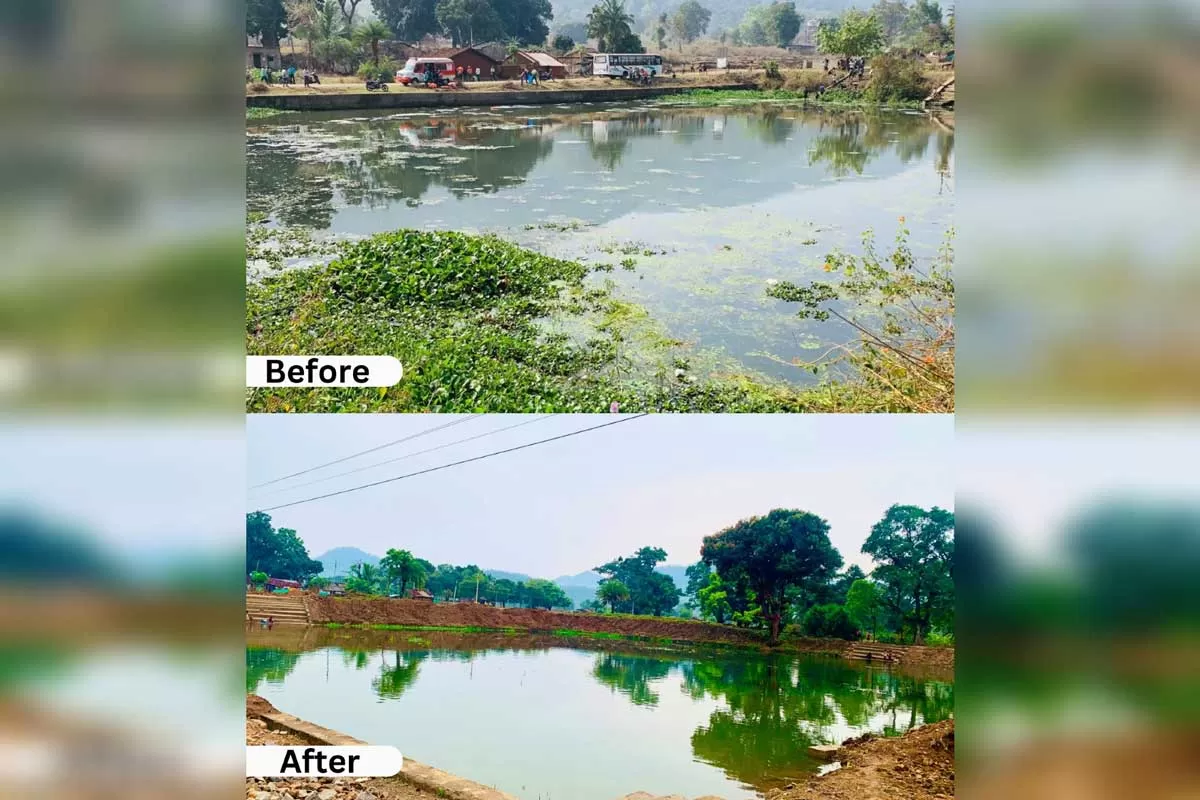As the world commemorates World Water Day under the theme 'Water for Peace', Vedanta Aluminium, India's largest producer of aluminium, announces the recycling of over 15 billion litres of water across its operations during FY24. For context, this quantity is roughly equivalent to 6,000 Olympic-size swimming pools. Further, it has helped restore over 60 water bodies in communities across its operational areas in rural India during the same period: 47 in Korba, Chhattisgarh, 10 in Jharsuguda, Odisha, and 3 in Lanjigarh, Odisha, demonstrating its commitment to building water-resilient communities. In its journey towards becoming Net Water Positive by 2030, the company has also achieved a significant 11% reduction in withdrawal from freshwater sources.
On the occasion, the company also unveiled three major water management initiatives in progress at its operations in Lanjigarh, home to its world class alumina refinery, at its mining operations at Jamkhani in Sundargarh, Odisha, and at BALCO, India's iconic aluminium producer and a unit of Vedanta Aluminium located in Korba, Chhattisgarh.
The first is "Sangam", an Integrated Watershed & Livelihood project that builds upon technology-backed initiatives to enhance the livelihoods of rural communities through a participatory approach. The project aims at creating water-based assets across 41 villages in Lanjigarh, Kalahandi district, Odisha, ensuring round-the-year availability of water for drinking and agricultural purposes. The project will also bring irrigation to over 3,500 acres of land under cultivation in the region by increasing the water storage potential and groundwater recharge rate, ensuring that over 22,000 people are able to benefit from the project year-round.
To promote sustainable water management, the team at Jamkhani Mines has created rainwater storage facilities, including 2 ponds with an annual holding capacity of 1.4 lakh cubic meters. These ponds will serve as vital reservoirs for capturing and conserving rainwater, ensuring its availability during dry spells, and aiding groundwater recharge.
Meanwhile, BALCO has undertaken the installation of a Clarifier & Filtration System within its operations. The system can treat coal-mixed water, contributing to the treatment and reuse of over 1.46 million cubic meters of water annually within the plant. The company has also further minimized water consumption by utilizing ashwater generated within its operations through recirculation in its fly ash handling plant, unlocking a potential savings of 1million cubic meters annually.
Speaking on the company's commitment to efficient water management, Mr. John Slaven, CEO, Vedanta Aluminium, said, "At Vedanta Aluminium, our vision for a sustainable future is rooted in the fact that water is an essential resource, crucial to sustaining the planet. We therefore maintain a steadfast commitment to achieving net water positivity by 2030, through efficient water management practices, which are crucial for sustaining communities and industrial operations. We are backing this up by also spreading greater awareness about the need to conserve water and nurture our existing water sources."
In sync with the global call for better water stewardship, Vedanta Aluminium organised various activities aimed at fostering responsible water management and the need to conserve water across its operations. Across its operations in Chhattisgarh and Odisha, the company has excavated, cleaned, and desilted 60 community ponds, including 6 check-dams this year, with the help of community participation, before handing over the water-structures back to the village panchayats.
In addition, the company organised activities like an expert-led webinar on water management and a workshop on the company's water conservation and utilization plans. Employee volunteers joined pond restoration efforts, rejuvenating existing rainwater harvesting structures on the occasion. Engaging activities like short film screenings, quizzes, slogan creation, and poster making were organized at schools to ensure maximum awareness among community members and employees alike. Collaborative awareness efforts with agricultural authorities aimed to disseminate knowledge on efficient irrigation methods to local farmers. Community rallies on water conservation were also organized, led by a collective resolve towards sustainable practices.





















